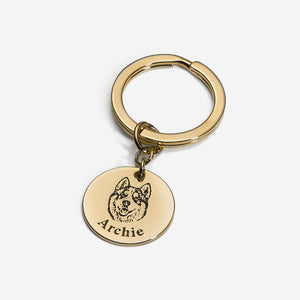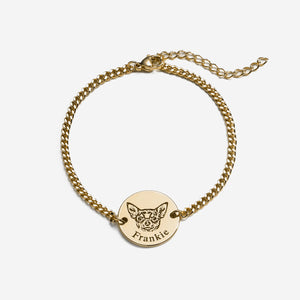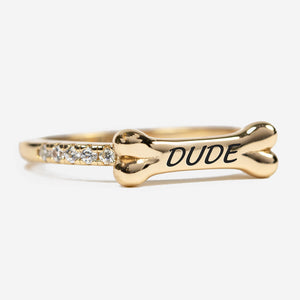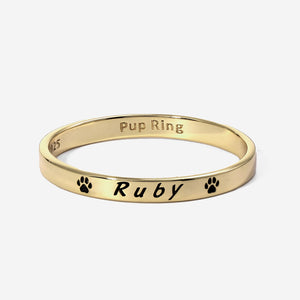You’ve made the decision to adopt a dog. Congratulations! But before you rush out to impulse buy the first cute pup you see, you should ask yourself about what the perfect pup looks like from every angle- no, not thinking about your new buddy- you need to spend a lot of time thinking about yourself!
Without further ado, here are the 5 big questions you should ask yourself to choose the perfect dog!
1.Why do you want a dog?
This is the most personal item on our list. This is probably the main thing most people actively think of when they decide to get a dog. Why are you getting a new dog?
Do you want a cute, energetic puppy to raise with your family? Whether it’s just an active companion to help you get out more, or the puppy your kid has always wanted, you’ll probably put more emphasis on a dog that is cute and has a higher energy level. If you want a dog to help teach your kids responsibility, be prepared for your kid to be bored, forgetful, or distracted. You will need to support your child’s care of the dog, whether for exercise, attention, or daily care. No matter how responsible your kid is, a dog is a commitment for that pup’s lifetime.
Do you want a low-maintenence couch potato to snuggle when you get home from work? In this case you will be less picky about the looks of your pup and more focused on its energy level and snuggleability. You might consider things like getting an older dog, maybe one that is already trained and has a solid foundation in good behaviours. You’ll also probably want a dog that doesn’t have special needs that involve a lot of extra care,
Do you want to foster or adopt with a focus on helping a dog in need? In this case you will want to assess what kinds of needs you can reasonably address in a dog. Do you have the money to pay for special medical needs? Do you have the environment to care for a dog that is nervous around strangers, children, or other pets? And do you have the time to rehabilitate a dog that struggles with behavioural problems or basic training?
*Keep in mind- these questions are not intended to discourage you from adopting or fostering! They are meant to help you and your dog get the most out of your relationship and help you assess which challenges you are ready to overcome together.
2.What space do you live in?
Next you need to think about every aspect of the place you live- the space, the people, and the other aspects of what your dog’s home life will be like.What kind of physical space do you live in? First and foremost, your dog will need to be able to fit into the space you have. Your dog needs space to exist. You’ll also need a location where you can exercise your dog in- a big room, a yard, a dog park, or a safe area for regular walks. You also need to make sure that the climate is suitable for your dog. For example, if you have a husky, it will be much healthier if you live somewhere cool, or have really good air conditioning to prevent it from overheating. Speaking of cars, make sure you have space for your dog there too!
If you rent an apartment or home, what does your lease say about pets? If you rent, your landlord will likely have some rules in place regarding pets. You will probably have to pay a pet deposit or monthly pet fee. The lease may have rules about your dog’s size, breed, how many pets you can have, or even where your dog is allowed to be on the property. Although it may be tempting to get a dog without consulting your landlord, it’s vital to follow the rules now to ensure that you don’t break your lease, which can lead to big fines, being forced to rehome your dog, or even getting kicked out altogether.
Who lives with you? If you have roommates or family members living with you, you need to make sure they are all on the same page about getting a dog. It’s also important that you all have an understanding of the rules you have for the dog- being consistent about things like not feeding table scraps or encouraging the dog to jump on people is vital to help the dog have a clear understanding of what the rules are.
You also need to make sure that any other pets you have are ready for a new four-legged friend. If you’re not sure, then you can either have a friend’s dog over to visit, or even foster a dog before committing to a new permanent pal.
Do you plan to move soon? If you plan to move, you will need your new home to accommodate your new dog. If you plan to rent your next living space, I can tell you from personal experience that you will have far fewer options to choose from. Unless your dog is a service dog or emotional support animal, landlords are not required to allow pets on the property. Like I said before, you also need to make sure your new space is big enough for your dog.
*Another renting tip :) Make your dog a pet resume! Some renters will ask for you to submit an application for your pet to make sure it meets their requirements. Include a friendly-looking photo and things like vaccinations, training classes, and fun tricks. If you find an apartment or home that does not allow pets, you can always contact them directly about a potential exception. The main reason that landlords do not initially allow pets is due to concerns about safety or property damage. Be prepared to negotiate on a pet deposit or monthly fee to help them feel comfortable allowing your dog..
**My personal experience- At the last home my husband and I rented, it was listed as no pets allowed. The policy was standard for the landlord’s properties, and one of the maintenance workers had a bad fear of dogs. We explained that the pet policy was make or break for us and that my dog was to help with my PTSD and Panic Disorder. Finally, we had a fantastic renting history and agreed to a modified pet policy in our lease.
3. What lifestyle do you have?
The time you have and how you spend it will have a huge impact on what kind of dog you should bring into your life!
What kind of job do you have? If your job means you work long hours away from home, you’ll want a dog that will be okay being home alone for that period of time. Something else you can do is hire a dog walker or put it in daycare. You’ll want a dog you can tire out easily before you leave for the day. If you work from home, it will give you a lot more flexibility. You may have a job that lets you bring your dog to work! Or, maybe you have to travel a lot for work. Make sure you can meet the needs of the dog you choose to bring home.
Do you travel often? If so, you might opt for a dog that’s ready for as much adventure as you are! Maybe you’ll want to opt for a pup that’s tiny and portable! Or, maybe you want a strong, rugged mountain dog that’s eager to help you pack out your hiking supplies! Either way, make sure you have a system to transport your dog, and have a plan for occasions that you can’t bring it along.
Do you have visitors often? If so, it’s important that your dog is okay being around strangers. Even if your pup enjoys being the life of the party, have a quiet safe space set aside for when your dog gets tired of visitors.

Do you go out a lot? If you’re in the city and you love to go-go-go, consider what kind of dog you want to bring along! It will need to have a decent amount of energy. You might also think about if you want a dog small enough to carry around as a tiny errand pup! If you get around town using a subway, it will be necessary to have a dog that will be small enough to fit in a bag (although I’ve seen some pretty large dogs that are content curled up in a big tote just for the privilege of spending more time with their owner!)
4. What are your finances?
Have you budgeted for regular doggy related expenses? It’s no secret that you will have to pay for dog food, but there’s more to owning a dog than paying for its meals. You’ll need to buy pet supplies like leashes, training tools, and toys. You may want to put your dog in daycare during vacations or regularly hire a dog walker if you have long hours at your day job. There might be upfront medical costs for your dog that include a wellness exam, vaccinations, and if you choose to do so, spaying or neutering your dog. You’ll also need to be prepared for yearly exams and vaccinations, as well as preventative treatment for fleas and ticks.
Are you financially prepared for emergencies? If possible, be prepared for potential medical emergencies or future chronic medical conditions that your dog may develop. Some breeds are more prone to health issues, such as eye infections in pugs or or epilepsy in beagles. It’s always a good idea to have a general emergency fund for any unexpected life expenses, and doggy accidents are no exception. The last thing you want is to have to make the decision between an expensive vet bill or letting your dog go. After a recent health scare with my own dog, we made the decision to get pet insurance.
5. Where do you see yourself in 5-10 years?
You’ve probably heard this question in an interview for a job or school, but its use doesn’t stop there! No matter how excited you are for a new pup right now, don’t forget that it’s a long-term commitment.Does your future involve a career change? There are a couple of things to think about here. If you have to pick up and relocate for your job, you should think about how your new dog will fit into the equation. This kind of goes along with the section on moving we talked about earlier. Second, you need to make sure that if your job will suddenly take much longer hours or involve a lot of travel, your pup is ready to adjust as well.
Is long-term travel in your future? If you’re going to go on a year-long backpacking trip in a third-world country starting next month, it probably isn’t the right time to add a new dog to your life. Having regular travel plans you can accommodate for is one thing, but if you’ll be gone much longer, the new pup should probably wait.
Is your family about to change? Maybe grandma’s about to move back in with you. Maybe you have a baby on the way! Or maybe the kid you already have is about to move out on their own. It’s always stressful to have big changes like this- and it’s stressful for your dog too. If someone’s moving in, then you should look for a dog that you know will behave around them. If someone’s moving out, be ready to take on any responsibilities you were going to give to them. Or, if your new dog is going to college too, make sure that your young adult will have the money, time, and living space appropriate for the pup.
Congratulations! You’ve taken all this time to think about your lifestyle and how a dog will fit in. If you got this far you’re obviously the responsible type and I’m proud of you! Thanks for reading this week’s blog post, and keep an eye out for Part 2 next week, which will be all about how to find the perfect dog!







